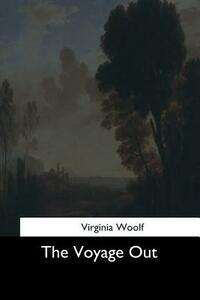Take a photo of a barcode or cover
Didn't like it too much. I hear Rachel dies at the end.
challenging
dark
mysterious
reflective
sad
slow-paced
Plot or Character Driven:
Character
Strong character development:
Yes
Loveable characters:
Complicated
Diverse cast of characters:
No
Flaws of characters a main focus:
Complicated
dark
emotional
informative
inspiring
reflective
sad
slow-paced
Plot or Character Driven:
Character
Strong character development:
Yes
Loveable characters:
Yes
Diverse cast of characters:
No
Flaws of characters a main focus:
Yes
challenging
emotional
reflective
sad
slow-paced
Plot or Character Driven:
Character
Strong character development:
Yes
Loveable characters:
No
Diverse cast of characters:
No
Flaws of characters a main focus:
Yes
challenging
reflective
slow-paced
This took me forever to finish, and now that I have—YEEEESSSSS!
I loved the characters and the prose (sort of, gonna explain that in a while), but I guess a plotless story, despite its beautiful stream of words (which can become convoluted at times), doesn’t work well when it just goes on and on and on. I liked this story, nonetheless. Just took me ages and a lot of effort to push myself through reading this.
I loved the characters and the prose (sort of, gonna explain that in a while), but I guess a plotless story, despite its beautiful stream of words (which can become convoluted at times), doesn’t work well when it just goes on and on and on. I liked this story, nonetheless. Just took me ages and a lot of effort to push myself through reading this.
"La crociera" porta il segno della sua travagliata stesura. I suoi protagonisti sono insofferenti e incostanti, la sua struttura è iridescente come il dorso di un pesce, continuamente in mutamento, accoglie tutto il mondo che Virginia Woolf voleva riversare nella sua scrittura. Il suo primo romanzo pubblicato porta il segno di quel sistema di scrittura che Virginia voleva fosse in grado di raccogliere già l'esistenza quale è e dunque si esercitava con fermezza a introdurre nel suo esercizio e nel complesso del romanzo ogni più piccola impressione. "La crociera" è un romanzo mastodontico, forse uno dei più tradizionali dell'autrice e sicuramente meno folgorante, nell'immediato, di Mrs. Dalloway ma già porta in sé il seme della grandezza di Virginia: acuta osservatrice, grande comprensione dell'animo umano e smisurate dosi di compassione, ironia, intelligenza e affetto.
I'm planning to finally read more of her work this year and this novel definitely motivated me to do so. The writing is brilliant, there are so many sentences and pages were I did not mind at all that not a lot was happening in the story because I got really taken in by the way she describes feelings and thoughts about life.
slow-paced
I was going to give this 3.5 stars but then, the ending got a bit of my emotional side and I could not resist giving it some extra love.
"What is it to be in love?" she demanded, after a long silence; each word as it came into being seemed to shove itself out into an unknown sea. Hypnotised by the wings of the butterfly, and awed by the discovery of a terrible possibility in life, she sat for some time longer. When the butterfly flew away, she rose, and with her two books beneath her arm returned home again, much as a soldier prepared for battle.
With this novel I had the same problem I had had when reading [b:Flush|18844|Flush|Virginia Woolf|https://i.gr-assets.com/images/S/compressed.photo.goodreads.com/books/1287554256l/18844._SY75_.jpg|3461240] just a couple of weeks ago.
And that was how conventional this story proved to be.
Conventionality became a slight issue here but not a terrible one. In fact, it was not too difficult to let go of this problem while reading the story, which actually might have been a direct side-effect of its ordinary writing style in the first place. Like an endless circle of trying to find the origin of the problem.
But, you see, the problem here was that this was not a bad book, not at all. It is well written, the plot proves consistent from beginning to end, and some of the characters are well crafted enough to elicit an emotional response. That is all fine and dandy if you ask me... except for the tiny detail that by virtue of being so average in terms of execution, you end up with the feeling this could have been written by many, many other authors.
It did not read like a Virginia Woolf novel, not even thanks to the surprising cameo of her most popular character.
*
Of course, I can only give her the benefit of the doubt considering this was her first novel.
It is almost fascinating to watch the evolution from one point to another of the same person, the evolution of her pen and the increase in sophistication of her ideas and themes. This was a novel about people taking a boat from England towards South America (and a discussion of colonialism and imperialism would fit perfectly at this point alongside [b:Heart of Darkness|4900|Heart of Darkness|Joseph Conrad|https://i.gr-assets.com/images/S/compressed.photo.goodreads.com/books/1392799983l/4900._SX50_.jpg|2877220]) and doing pretty much nothing with their time except taking breakfast, luncheon, tea, and dinner. As per usual, nothing too shocking happens during the story much like Woolf's entire body of work (or at least, from what I have read so far since I am, shocking no one, an expert). Yet, the still freshness of her narrative voice sets this novel apart from the rest, as if she was still struggling to find herself among the ocean of other authors plaguing the publishing world at that same time.
It is clear from this novel that it would take another couple of years for her to find such voice at all.
For some minutes the rain continued to rattle upon the skylight, and the thunder gave another shake or two; but it was evident from the clearing of the darkness and the light drumming of the rain upon the roof, that the great confused ocean of air was travelling away from them, and passing high over head with its clouds and its rods of fire, out to sea. The building, which had seemed so small in the tumult of the storm, now became as square and spacious as usual
**
"What is it to be in love?" she demanded, after a long silence; each word as it came into being seemed to shove itself out into an unknown sea. Hypnotised by the wings of the butterfly, and awed by the discovery of a terrible possibility in life, she sat for some time longer. When the butterfly flew away, she rose, and with her two books beneath her arm returned home again, much as a soldier prepared for battle.
With this novel I had the same problem I had had when reading [b:Flush|18844|Flush|Virginia Woolf|https://i.gr-assets.com/images/S/compressed.photo.goodreads.com/books/1287554256l/18844._SY75_.jpg|3461240] just a couple of weeks ago.
And that was how conventional this story proved to be.
Conventionality became a slight issue here but not a terrible one. In fact, it was not too difficult to let go of this problem while reading the story, which actually might have been a direct side-effect of its ordinary writing style in the first place. Like an endless circle of trying to find the origin of the problem.
But, you see, the problem here was that this was not a bad book, not at all. It is well written, the plot proves consistent from beginning to end, and some of the characters are well crafted enough to elicit an emotional response. That is all fine and dandy if you ask me... except for the tiny detail that by virtue of being so average in terms of execution, you end up with the feeling this could have been written by many, many other authors.
It did not read like a Virginia Woolf novel, not even thanks to the surprising cameo of her most popular character.
*
Spoiler
In fact, that was one of the most bizarre elements of this novel. Mrs Dalloway did not read like the real Mrs Dalloway, if that makes any sense considering she has always been a piece of fiction. In fact, when she appeared alongside her husband and started talking, it almost gave me the feeling that this was someone else trying to write Clarissa Dalloway inspired by the original book and inevitably failingOf course, I can only give her the benefit of the doubt considering this was her first novel.
It is almost fascinating to watch the evolution from one point to another of the same person, the evolution of her pen and the increase in sophistication of her ideas and themes. This was a novel about people taking a boat from England towards South America (and a discussion of colonialism and imperialism would fit perfectly at this point alongside [b:Heart of Darkness|4900|Heart of Darkness|Joseph Conrad|https://i.gr-assets.com/images/S/compressed.photo.goodreads.com/books/1392799983l/4900._SX50_.jpg|2877220]) and doing pretty much nothing with their time except taking breakfast, luncheon, tea, and dinner. As per usual, nothing too shocking happens during the story much like Woolf's entire body of work (or at least, from what I have read so far since I am, shocking no one, an expert). Yet, the still freshness of her narrative voice sets this novel apart from the rest, as if she was still struggling to find herself among the ocean of other authors plaguing the publishing world at that same time.
It is clear from this novel that it would take another couple of years for her to find such voice at all.
For some minutes the rain continued to rattle upon the skylight, and the thunder gave another shake or two; but it was evident from the clearing of the darkness and the light drumming of the rain upon the roof, that the great confused ocean of air was travelling away from them, and passing high over head with its clouds and its rods of fire, out to sea. The building, which had seemed so small in the tumult of the storm, now became as square and spacious as usual
**





